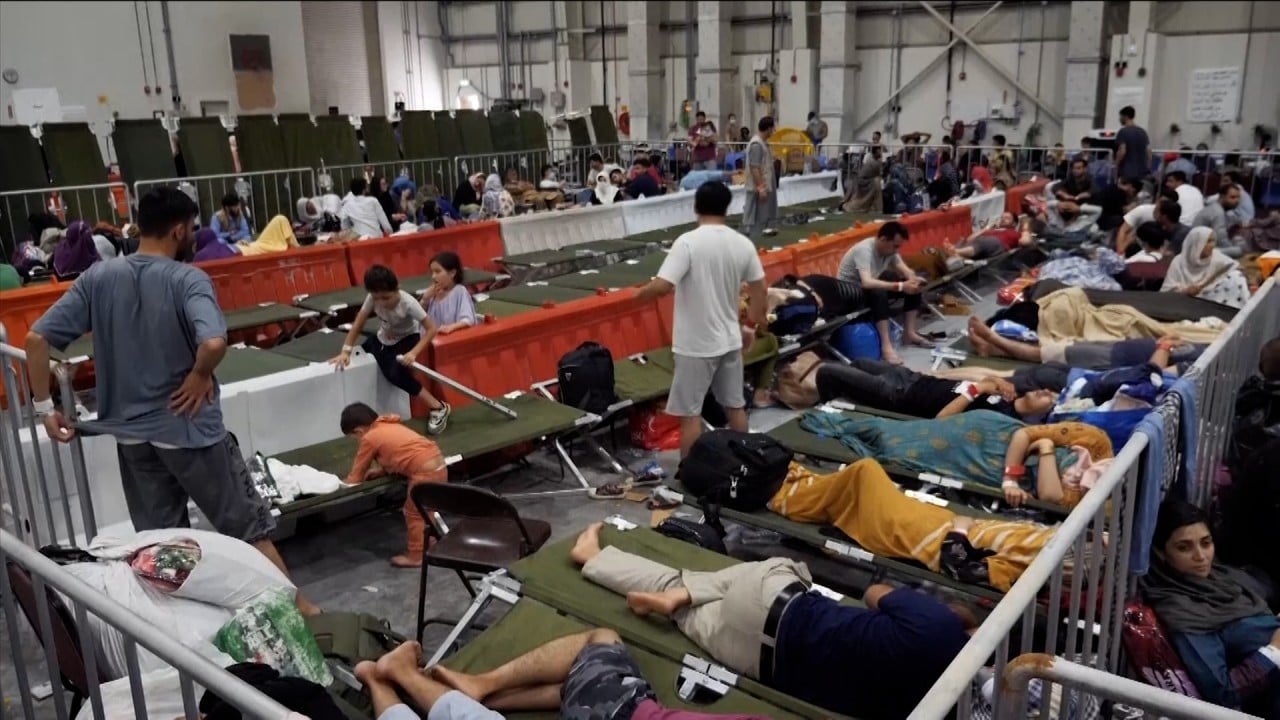
EU foreign ministers set for first talks on China since sanctions blitz six months ago
- Beijing’s recent diplomatic row with Lithuania over Taiwan expected to be high on the agenda
- The talks are designed to take stock of the EU-China relationship at a time of global geopolitical upheaval
“The idea is to have a view of where we are in the relationship with China. It’s a complex, multifaceted relationship. We have these three different pillars, from partners to competitors to systemic rivals. And in each of these different comprehensive [relationships], we have had pros and cons, we have had problems, we have had advances,” said a senior EU official involved in the planning of the talks.

02:37
US still has mission to process refugees after withdrawal from Afghanistan
Despite this, China was left off the formal agenda of the monthly foreign ministers’ meetings for six months, while the pace of the deterioration in ties slowed over the summer, with other geopolitical issues taking the spotlight.
China will also feature during talks about Afghanistan, with some EU nations pushing for close collaboration with both Beijing and Moscow on the fallout of what the bloc’s High Representative for Foreign Affairs Josep Borrell has described as the “most important geopolitical event since the Crimea annexation”.
Taliban confront Afghan economy in turmoil and humanitarian crisis
But the situation with Lithuania has brought the perceived threat of China sharply back into focus.
China claims Lithuania breached the EU’s “one China policy” by allowing the office to bear the name “Taiwanese” rather than “Taipei”. Both Vilnius and Brussels have denied this, with the EU throwing its support behind Lithuania, which has become the most vocal critic of China within the bloc’s 27 members.
“We have expressed very clearly that we disagree [with] what China is doing in its recalling of the ambassador, and putting this kind of economic pressure [on Lithuania], which is basically against international law,” the official said.

“We have to consider that China is wrong in this case. No action from Lithuania, from the European Union, from any member states has put in doubt the principle of the one China policy,” the official added.
Lithuanian officials have previously told the Post that they are “waiting for a greater response than encouraging noises”.
However, there will be no resolutions passed at this week’s Slovenian summit, which is billed by the EU as an informal gathering.
But the talks will mark the start of a busy autumn for Brussels’ China policy, setting the tone for the EU-China relationship in 2022.
On Wednesday, the European Parliament’s Foreign Affairs Committee adopted its first stand-alone report on Taiwan, in which it urged the European Commission to “intensify EU-Taiwan relations and to pursue a comprehensive and enhanced partnership under the guidance of the EU’s one China policy”.
“Work on an impact assessment, public consultation and a scoping exercise on a bilateral investment agreement with the Taiwanese authorities in preparation for negotiations to deepen our economic ties must begin before the end of this year,” said Charlie Weimers, rapporteur on the committee’s relations with Taiwan.
Covid-19 booster jabs can help vulnerable: WHO Europe head
Parliament is set to make policy recommendations on the broader China relationship this month, while the EU will also release more details on its Indo-Pacific and connectivity strategy, both of which are designed to counter China’s influence.
The European Council, a body made up of the EU’s 27 heads of state, will meet in October to discuss China strategy, while there are also plans to host an EU-China summit before the end of the year.
The EU will also unveil a suite of new legislative tools designed to hit back at China, including one on economic coercion and another on forced labour.
“Another indication of the commission’s direction will be the strength of legal measures included in the new due diligence mechanism and anti-coercion instrument proposals of which are set to be unveiled this fall. The two legal tools may impact the operations of European businesses in China and the EU’s way of addressing China’s economic coercion activities,” wrote Grzegorz Stec and Francesca Ghiretti, analysts at German think tank Mercator Institute for China Studies, in a note.

